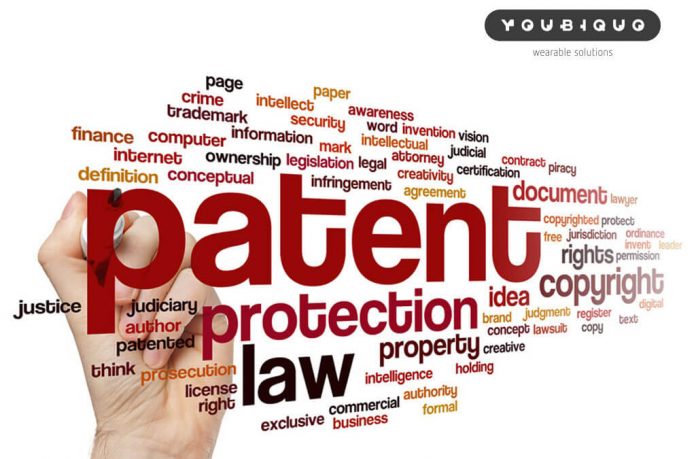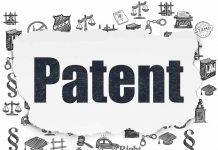This article is written by Shohom Roy from Symbiosis Law School, Noida. This article describes the employer-employee patent ownership scenario in India.
Table of Contents
Introduction
Jurisprudential advancement has given birth to intellectual property rights. The law now recognizes the intangible property of individuals and the different intellectual property regimes can now be considered for determining ownership in the employer-employee context. Some of the pieces of legislation like the Copyright Act, 1957 stipulate that when the author of creative work is employed under a contract of service and creates something during the course of his employment, the ownership of copyrights is bestowed upon the employer. However the Patent Act,1970 is silent on the issue of an employer’s ownership over an invention made by an employee during the course of his employment and recognizes only the inventor’s right over an invention. This article analyses the impact of nonrecognition of patent rights over an invention made by an employee utilizing the resources of the employer affects the evolution of intellectual property rights in the country.
What is a patent
A patent is a form of intellectual property right granted for an invention of a product or a process. The inventions fulfill the criteria of novelty, nonobviousness, and usefulness to be eligible for a patent. The present Patents Act, 1970 is a consolidation of the previous patent laws existing in India. The Act specifies the category of inventions not eligible for patents in Section 3 and Section 4. With subsequent amendments, the issues of exclusive marketing rights, compulsory licensing, post-grant and pre-grant opposition have been dealt with. A patent can be filed either by the inventor or by the assignee. A patent creates a right in rem and restricts anyone from making, using, selling, or offering to sell the patented product/process. A patent is valid for a period of 20 years from the date of filing the patent application in India.
Employer-employee patent ownership
Companies invest in research and development to get an edge over the competition in the market. For instance, huge amounts of resources are being employed by the pharmaceutical industry to produce vaccines for COVID-19. It is a common practice to register patents under the company’s name. Thus the legal framework protecting intellectual property rights should be sensitive to the valuable investments made by employers in providing expensive equipment, trade secrets, and financial help to the inventors. However the Patents Act, 1970 is oblivious to the effect of the employer-employee relationship on patents in India. The law considers the inventor to be the ‘first owner’ of the patent which creates a huge risk for the employers. The lack of a provision allowing employers to reap benefits from the investments destroys the spirit of invention and research in the country.
This article elaborates on how pre-invention assignments and the entitlement of an employer over the ownership of a patent on an invention made during the course of employment can safeguard the interests of the employer. Moreover, some foreign laws on employer-employee ownership of patents are studied to provide a better understanding of the international patent laws and pinpoint the flaws in its Indian counterparts.
Are pre-invention assignments enforceable in India
A pre-invention assignment is a mechanism that transfers the right over any future invention from one party to another. Companies involved in technical inventions require their employees to sign a pre-invention assignment that bestows all rights to the employer over any inventions that the employee creates during the completion of normal duties assigned to him.
Most pre-invention assignments consist of an assignment provision, a disclosure provision, and a power of attorney provision. The assignment provision transfers all rights over intellectual property created during the course of employment to the employer. The disclosure provision creates a legal obligation for the employees to inform the employer about every aspect of intellectual property. The employer can exercise his ownership rights over intellectual property through the execution of the power of attorney provision.
The Patents Act, 1970 stipulates the requirement of a contract specifying the rights and duties of the parties in order to file an application for assignment of the right to apply for a patent. The law also mandates a ‘proof of the right to make an application’.The Delhi High Court in the case of Pine Labs Pvt. Ltd v Gemalto Terminals India Pvt Ltd (2011) observed the statutory requirement of ratification of an assignment even after an agreement to assign. The assignment of ownership rights over future works is regarded as an agreement to assign rather than an actual assignment. This principle was established in the field of copyrights law and later extended to patents law. An invention needs to be verified and designated before an assignment can take place. Although the Copyrights Act, 1957 recognizes the right of the employer’s over the work produced by an employee during the course of employment, the law on patents has not evolved to cure this defect. Therefore a pre-invention assignment creates an equitable assignment rather than an actual assignment of rights over a future work. While the interest in the intellectual property passes from one party to one and creates an enforceable right in an actual assignment, an agreement to assign does not create any such right. The unenforceability of pre-invention assignments of patents in India creates an additional layer of procedural formalities. The execution of an assignment provision after the invention allows employees to arbitrarily deny ownership rights over an invention produced during the course of employment. This creates a risk for the employers and allows hostile employees to prevent employers from establishing their right over the inventions they had sponsored.
Patents on work created during the course of employment
The course of employment can broadly be understood as the time period during which an employee performs the normal duties assigned to him as well as the time spent on the employer’s premises preparing to commence or depart from work. While the Copyright Act, 1957 confers ownership rights to the employer over anything produced or done by an employee in the course of employment, the Indian Patents Act, 1970 considers the inventor to be the first and foremost owner of an invention. There exists no provision that allows the Courts to recognize the right of an employer over an invention created during the course of employment. This poses a major problem as employers might be unable to gain ownership rights from an employee subsequently.
In the case of Darius Rutton Kavasmaneck v Gharda Chemicals Ltd (2014), the High Court of Bombay refused to change the legislative defect and lay down a precedent safeguarding the rights of the employers. The Court justified its decision by pointing out that a Managing Director of a company is not supposed to be involved in the field of research and development. Therefore in the present case, the inventor was working outside the course of his employment and the inventions were not a product of the normal duties assigned to him. Moreover, the inventor is the rightful owner of the inventions made by him. It was held that the Managing Director of the chemical company had a legal right to register patents over various inventions and since he had never demanded compensation from the Company under which he was employed there was no reason for the Company to change the present situation of patent ownership.
Employer-employee patent laws in other countries
The United Kingdom
The laws of countries like the United Kingdom, Israel, and China have introduced a provision of ‘deemed ownership’.This provision depends on the principle of ‘duty to invent’ by which an individual is restricted from gaining ownership rights over a piece of work done during the course of employment. Section 39 of the United Kingdom Patents Act, 1977 entitles the employer to an invention made by a person during the course of employment. However, the employer must demonstrate a relevant relationship to seek relief under the Act. In the case of LIFFE v Pinaka (2007), the England and Wales Court of Appeal (Civil Division) had held that inventions made by a person while performing the normal duties assigned to him do not confer ownership rights to the inventor. The Court had opined that the scope of employment and the actions that naturally arise from the duties assigned to him must be considered along with the employment contract. The English law also allows an employee to act as a trustee for the employer in the context of patent ownership. The employee is bound to transfer the patent rights to the employer and the employer is safeguarded with rights to revoke the grant of patent to the employee within a reasonable time and apply for a fresh patent.
According to Section 30(6) (a) and Section 7(2) (b) of the UK Patents Act,1977 a person is entitled to an invention if there exists an enforceable contract between the inventor and the individual before the invention. Thus pre-invention assignments are enforceable in the UK as established by the case of KCI Licensing v Smith & Nephews (2010). The law ensures that the investors are not restricted from their right to exercise ownership over an invention.
Israel
The Israel Patents Act, 1967 establishes ownership rights of an employer over an invention considered to be ‘work-made-for-hire’. The invention must satisfy the conditions of the existence of the employer-employee relationship and transformation of a raw undeveloped idea into a mature invention during the course of employment to be considered ‘work-made-for-hire’. The Act specifies that if the employer does not exercise his right to file an application for a patent the employee-inventor shall be deemed to be the owner of the invention. The law stipulates that the obligation to prove that the invention falls under the category of work-made-for-hire rests with the employer who must provide the employee with fair and reasonable compensation in order to assert ownership rights over the invention.
The United States of America
The United States of America has a jurisprudential tradition of using the concept of ‘shop-right’ to safeguard the interests of the employer. A ‘shop right’ is a non-exclusive license granted by the employee to the employer allowing him to utilize the invention for economic gains without consulting the inventor. The shop right cannot be transferred by the employer, who retains the license even if the inventor sells his ownership rights in the patent. In the case of Goodyear Tyres and Rubber Company v Miller (United States) (1926), the plaintiff company sought specific performance of an agreement by which the defendant was supposed to surrender and transfer his interest in a valuable invention. The invention was made during the course of employment and utilizing the company’s resources. Therefore the Court observed that “ if a company is to be denied the fruits of its success, it will cease to subsidize failure and experimental departments will go”.This principle was reinforced by the case of Standard Parts Co. v Peck (1924), in which the Supreme Court of the USA opined that since the employer had made a substantial financial contribution to the employee’s invention, the employer is entitled to the claim ownership over the invention.
In the case of Board of Trustees of the Leland Stanford Junior University v Roche Molecular Systems, Inc. of USA (2011), an employee-inventor had entered into a contract with the University of Stanford agreeing to assign the rights to his future inventions to the University. Later he had entered into an agreement with a company named Cetus under which he had assigned the rights to the inventions made by him while accessing the resources of Cetus. A procedure was developed to quantify the blood-borne levels of HIV while working under Cetus. While the university had acquired the patent first, another company by the name of Roche Molecular systems acquired the rights to research activities and manufactured a test kit that became quite popular. A dispute arose between the company and the university regarding patent ownership. The Supreme Court of USA passed a judgment that seeks to limit the applicability of the University and Small Business Patent Procedure Act of 1980, to establish that an express provision of assignment between the inventor and a third party must be prioritized over an agreement to assign with a federal contract. Thus the patent ownership was granted to the company instead of the University. However, this raises serious concerns about the ownership of patents by public entities and increases the risk of uncertainty faced by public and private investors.
Employees working especially in the technology industry are given access to the trade secrets of their employers and in order to safeguard the interest of the employer, the holdover provision was introduced. The holdover provision is a post-employment covenant that seeks to make employees acknowledge the inventions made during the course of employment and deter them from using such inventions for personal gain in the future. The holdover clause is enforceable for a reasonable period of time and must not be inserted in a pre-invention assignment with an intention to restrict the right to work.
Conclusion
The lack of sensitization for employer rights in the Indian Patents Act, 1970 shows a major flaw in the law governing intellectual property rights. According to Section 39 of the aforementioned Act, a resident in India must seek the approval of the Controller of Patents before applying for a patent outside the country. This arduous process of seeking approval discourages foreign investment in research and development in the country. The Indian Patent Office has shown a tendency to reject the assumption that the assignment of rights over an invention to an Indian subsidiary is naturally accessible by the parent company. This creates a further hindrance for foreign companies and discourages investment in research and development.
Thus there is no doubt that the Indian Legal system should inculcate the measures implemented by other countries to protect the rights of the employer. The jurisprudence on patent laws must evolve in order to sustain and encourage the growth in invention and development. Establishing the legitimacy of pre-invention assignments and the employer’s control over the employee’s invention can prove to be significant steps to improve the employer-employee patent ownership framework in India.
References
- https://spicyip.com/2021/05/the-dilemma-of-employer-employee-patent-ownership-in-india.html
- https://www.nolo.com/legal-encyclopedia/pre-invention-assignment-agreements.html
- https://ipindia.gov.in/writereaddata/Portal/IPOAct/1_31_1_patent-act-1970-11march2015.pdf
Students of Lawsikho courses regularly produce writing assignments and work on practical exercises as a part of their coursework and develop themselves in real-life practical skills.
LawSikho has created a telegram group for exchanging legal knowledge, referrals, and various opportunities. You can click on this link and join:
https://t.me/joinchat/J_0YrBa4IBSHdpuTfQO_sA
Follow us on Instagram and subscribe to our YouTube channel for more amazing legal content.
 Serato DJ Crack 2025Serato DJ PRO Crack
Serato DJ Crack 2025Serato DJ PRO Crack











 Allow notifications
Allow notifications


